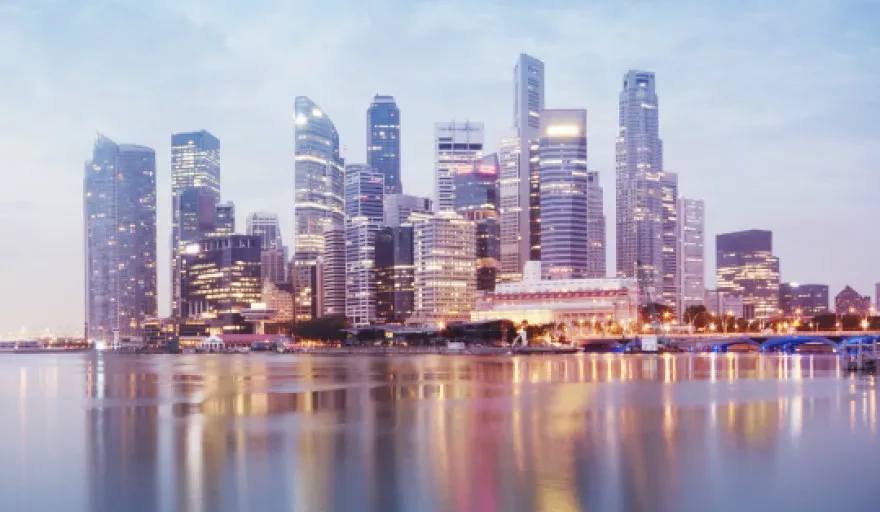Singapore ranks tenth on the inaugural Sustainable Cities Index from Arcadis, the leading global natural and built asset design and consultancy firm. The Index, which was conducted by the Centre for Economics and Business Research (Cebr) explores social (People), environmental (Planet) and economic (Profit) demands to develop an indicative ranking of 50 of the world’s leading cities. The 2015 report finds that no utopian city exists, with city leaders having to manage a complex balancing act between these three key pillars of sustainability. Frankfurt sits in first place, followed by London and Copenhagen on the ranking.
Whilst Singapore is placed in the top ten in the Sustainable Cities Index, it ranks lower than Hong Kong and Seoul largely due to lower scores for indicators like work-life balance, having expensive property prices, low use of renewable energy and a high cost of doing business. However, Singapore is the only country in Asia Pacific which made it into the top 10 of the Planet sub-index. The Planet sub-index looks at city energy consumption and renewable energy share, recycling rates, greenhouse gas emissions, natural catastrophe risk, drinking water, sanitation and air pollution. This demonstrates Singapore’s capability and commitment to green urbanisation and to ensuring that sustainability is at the heart of its overall master plan.
Eugene Seah, City Executive Director for Singapore at Arcadis commented: “To achieve Singapore’s vision of a sustainable city, a number of strategic initiatives are already in place. These include plans to build two new underground lines, extending four existing MRT lines and building a new terminal and runway at Changi Airport. New technologies will play an important role to drive greater level productivity and sustainability in the future. This will help to build a better Singapore and to further improve the quality of life.”
Seoul performs particularly well on the People sub-index which index rates transport infrastructure, health, education, income inequality, work-life balance, the dependency ratio and green spaces within cities, reaching second place globally. In part this is due to strong performing transport infrastructure, which is second only to another city in the continent, Melbourne. Yet, the Index shows that high working hours (20 per cent higher than the global average) and a consistently poor work-life balance hold Asian cities back from performing stronger on its people factors.
Hong Kong excels on the Profit sub-index. The Profit sub-index examines performance from a business perspective, combining measures of transport infrastructure (rail, air, other public transport and commuting time), ease of doing business, the city’s importance in global economic networks, property and living costs, GDP per capita and energy efficiency. Hong Kong also leads the way on university education and life expectancy, and offers its people the highest percentage of green space
Graham Kean, Asia-Pacific Head of Client Solutions at ARCADIS comments: “Cities in Asia Pacific demonstrate the greatest divergence: Seoul, Hong Kong and Singapore all make it into the top ten of the overall ranking, while New Delhi, Wuhan, Mumbai, Manila and Jakarta sit at the bottom. The Sustainable Cities Index highlights the areas of opportunity for city leaders to develop strategies for future decision-making to hopefully make them more sustainable economically, environmentally and for the welfare of their inhabitants.”
The full rankings can be viewed at www.sustainablecitiesindex.com




















